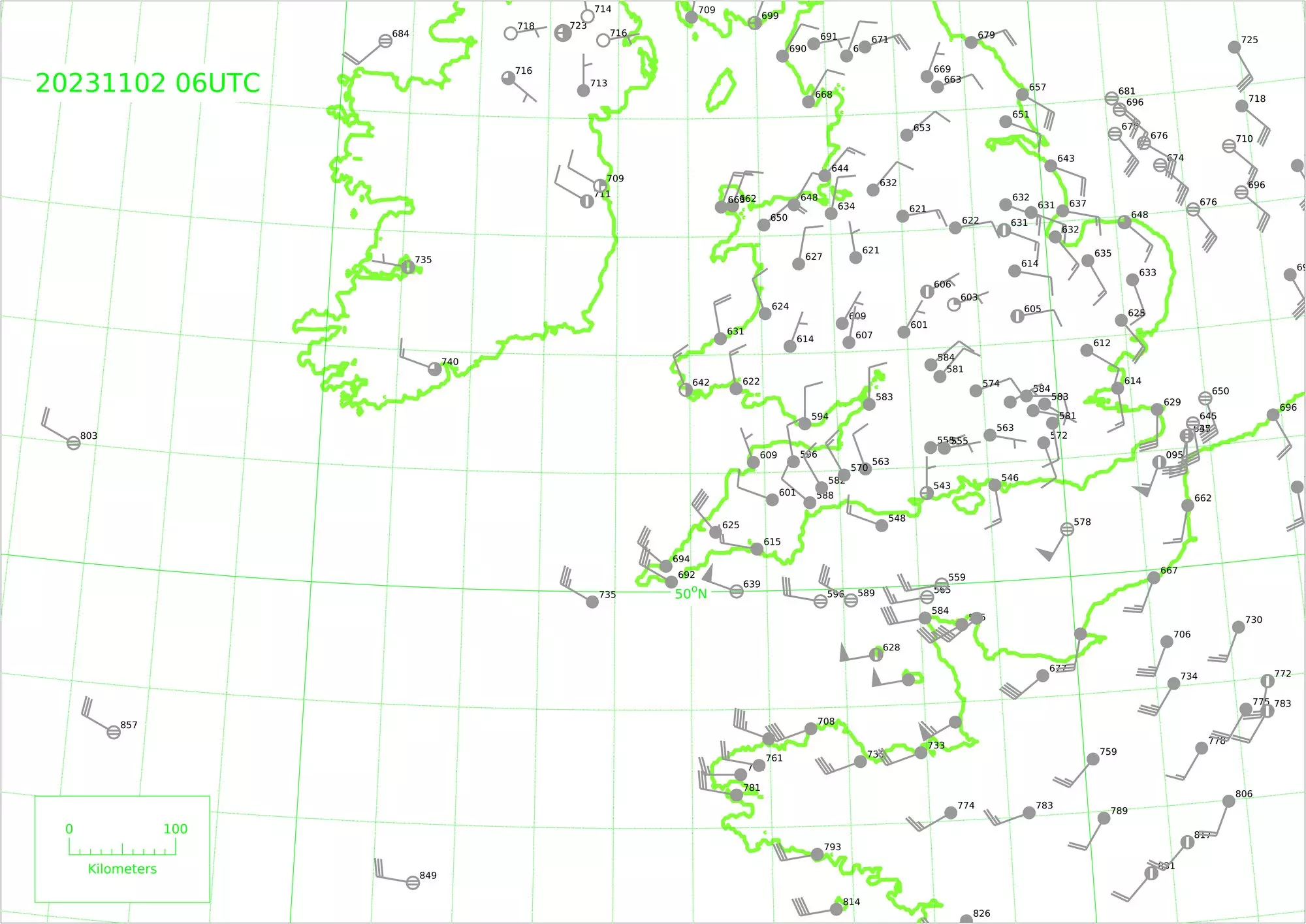

The recent study conducted by the University of Reading demonstrates the groundbreaking capabilities of artificial intelligence (AI) in predicting the path and intensity of major storms. According to Professor Andrew Charlton-Perez, AI is revolutionizing weather forecasting by enabling rapid and accurate predictions through machine learning techniques. This signifies a major shift from traditional forecasting methods, as AI models are now capable of producing global forecasts in a matter of minutes, offering a cost-effective and efficient alternative.
To evaluate the effectiveness of AI-based weather models, researchers at the University of Reading conducted a comparative analysis of AI and physics-based forecasts focusing on Storm Ciarán, a devastating windstorm that struck Europe in November 2023. By utilizing four AI models developed by tech giants like Google, Nvidia, and Huawei, the study found that AI predictions were on par with traditional forecasts in terms of accuracy, particularly in predicting the storm’s rapid intensification and trajectory 48 hours in advance.
While AI models excelled in capturing the large-scale atmospheric conditions that contributed to Storm Ciarán’s development, there were notable discrepancies in predicting the storm’s maximum wind speeds. The AI systems consistently underestimated the intensity of the storm, failing to accurately forecast wind gusts of up to 111 knots in certain areas. This underestimation was attributed to the AI models’ inability to account for specific features of the storm, such as temperature differentials near its center.
The study underscores the importance of further research into the use of AI in weather prediction to enhance the accuracy and reliability of forecasts, especially in the face of extreme weather events like Storm Ciarán. By refining machine learning models and addressing their limitations, artificial intelligence could play a crucial role in the future of weather forecasting, offering significant time and cost savings for meteorologists and improving public safety.
The study on AI-based weather prediction presents a paradigm shift in the field of meteorology, showcasing the immense potential of artificial intelligence in revolutionizing forecasting capabilities. By leveraging the power of machine learning and continued research efforts, the integration of AI into weather prediction could pave the way for more precise and efficient forecasting methods, ultimately benefiting society as a whole.
Natural gas leaks are a growing concern in both urban and rural settings, with potential…
Recent groundbreaking research at the University of Vienna has unveiled a novel interplay of forces…
In recent years, perovskites have garnered significant attention in the fields of materials science and…
For decades, astronomers have probed the depths of the Milky Way, grappling with two perplexing…
Foreign direct investment (FDI) in developing nations has long been heralded as a path to…
As spring beckons in April and May, stargazers have the unique opportunity to witness nature's…
This website uses cookies.